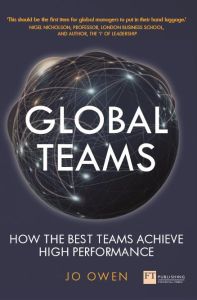Join getAbstract to access the summary!

Join getAbstract to access the summary!
Jo Owen
Global Teams
How the Best Teams Achieve High Performance
FT Press, 2016
What's inside?
To succeed at globalization, businesses need efficient teams operating at their peak worldwide.
Recommendation
To succeed at globalization, businesses need efficient teams operating at their peak worldwide. Global teams struggle with geography, time differences, and cultural and linguistic barriers. Their companies often must reconcile these teams’ divergent worldwide and local or national goals. Leadership expert Jo Owen explains that while senior executives tend to see global goals as paramount, team members also face local and national priorities. Owen’s fascinating and quite specific manual, while somewhat repetitive, includes a wealth of relevant details. getAbstract recommends his useful handbook to senior managers and global team leaders.
Summary
About the Author
Jo Owen is the award-winning author of 15 books, an entrepreneur and a frequent speaker on leadership. He built and led firms in Japan, Europe and North America. For this book, he worked with and researched more than 100 of the best organizations – and one or two of the worst.



















Comment on this summary